|
|
|
|
|
|
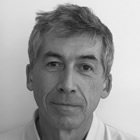 |
| KEYNOTE |
|
 |
| . |
|
|
Antonio Alcamí
CBMSO,CSIC-UAM, Spain
Keynote – Plenary Session
A. Alcami received his PhD in Biology from Universidad Autónoma de Madrid, Spain. After a postdoc at the Sir William Dunn School of Pathology in the University of Oxford, UK, he was awarded a Wellcome Senior Fellowship to establish his research group in the University of Cambrige, UK. In 2004 he moved to the Spanish National Research Council, first at Centro Nacional de Biotecnologia and later at Centro de Biologia Molecular Severo Ochoa, where he leads the Immunity & Viromics group. He is interested in viral immune evasion, and the development of virus-encoded soluble cytokine decoy receptors as new anti-inflammatory strategies. He is also interested in the discovery of viruses in polar and alpine ecosystems through viral metagenomics. Recently, he has been working on aerial transmission of respiratory viruses. He has 135 publications (h-index 41). ORCID ID: 0000-0002-3333-6016.
|
|
|
|
|
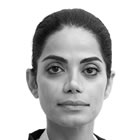 |
| INVITED |
|
 |
| . |
|
|
Kiana Aran
Cardea Bio / Keck Graduate Institute, USA
Invited – Plenary Session
Dr. Kiana Aran is a Co-Founder and Chief Scientific officer at Cardea Bio. She is also an Assistant Professor of Medical Diagnostics and Therapeutics at Keck Graduate Institute, a member of the Claremont Colleges and visiting Assistant Professor at the University of California Berkeley. She received her undergraduate degree in electrical engineering from the City University of New York in 2007 and her Ph.D. in biomedical engineering from Rutgers University in 2012. She then continued her postdoctoral studies in bioengineering at the University of California Berkeley and was a recipient of the National Institutes of Health (NIH) postdoctoral training fellowship at the Buck Institute for Aging Research in 2015. Her research efforts focus on designing novel biosensing platforms, using 2D nanomaterials, for early disease diagnosis as well as utilizing biology as tech elements for a variety of biosensing applications. In addition, to biosensing she combines various engineering modules to develop tools to better understand the process of aging. Dr. Aran scientific vision is to explore the utility of nano-electronic systems to develop transformative and customizable platforms for multiomics applications and commercialization of these platform. Her efforts have been recently recognized by many awards in science and STEM including the clinicalOMICS 10 under 40 and 2020 women in STEM leadership pinnacle award in life sciences category
|
|
|
|
|
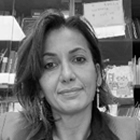 |
| INVITED |
|
 |
| . |
|
|
Fabiana Arduini
Università degli Studi di Roma “Tor Vergata”, Italy
Invited – Plenary Session
Fabiana Arduini is Associated Professor at Department of Chemical Science and Technologies, University of Rome “Tor Vergata”, CEO of start-up SENSE4MED, DG at ISO9001 Certified Laboratory LabCap, University of Rome "Tor Vergata”, Associated Editor of Microchemical Journal, Elsevier, and Coordinator of Italian Sensor Group, Italian Chemical Society 2019-2021. Her research activity deals with the development of miniaturised electrochemical devices mainly using screen-printed electrodes modified with nanomaterials and paper-based analytical tools applied in environmental, biomedical, and defense sectors, with over 120 articles published in peer-review journals, H index 40, Scopus source. During the COVID-19 outbreak, she has developed a method for fast evaluation of mask filtration properties in collaboration with National Environmental Agency and a miniaturised electrochemical biosensor for a rapid, cost-effective, and on site detection of SARS-CoV-2 in saliva in collaboration with Scientific Department, Army Medical Center, Italian Ministry of Defense.
|
|
|
|
|
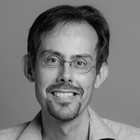 |
| INVITED |
|
 |
| . |
|
|
Vincent Bouchiat
Grapheal, France
Invited – Plenary Session
Vincent Bouchiat is the CEO of Grapheal, a company spin-off from Neel Institute focusing on bioelectronic and healthcare applications of graphene. He is on leave from the French National Research Center (CNRS) at Grenoble, where he has a permanent position since 1997. He received an engineer degree from ESPCI in 1993 and a Master Degree from the University of Paris, Pierre & Marie Curie the same year. He has completed his Ph.D. on quantum devices at CEA-Saclay in 1997 under supervision of Michel Devoret and Daniel Estève. He got the Visiting Miller Professorship Award from University of California, Berkeley in 2007, and the Lee Hsun Research Award from the Chinese Academy of Sciences (2017). He co-authored more than 100 publications with over 4000 citations and hold 9 international patents.
|
|
|
|
|
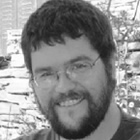 |
| KEYNOTE |
|
 |
| . |
|
|
Jorge Camacho
ITEFI-CSIC, Spain
Keynote – Plenary Session
Since 2005 I have been working as a researcher at the Spanish National Research Council (CSIC), currently at the Institute of Physical and Information Technologies (ITEFI) as a Distinguished Researcher. My work is focused on the field of applied acoustics, in particular on Advanced Real-time Ultrasonic Imaging Methods and Technologies. My motivation in research has been both the generation of knowledge and the development of technology and its transfer to the industry, as a way of giving society a direct return on its investment in R&D. I am the author of 24 articles indexed in JCR (15 in Q1), 2 book chapters and 55 articles in congress proceedings. I have participated in 70 congresses and seminars, and have given 14 guest lectures. I have participated in 26 projects and 18 research contracts (9 as Principal Investigator). I am the author of 8 patents (6 in exploitation). I have supervised 2 master's theses and 3 doctoral theses. I have obtained the I3 Certificate of Outstanding Research Career for the I3P Program.
|
|
|
|
|
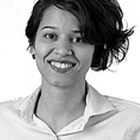 |
| INVITED |
|
 |
| . |
|
|
Cecília de Carvalho Castro e Silva
MackGraphe, Brazil
Invited – Plenary Session
Prof. Cecília de Carvalho Castro e Silva has been rated three years ago by Forbes Brazil as one of the 30 most promising young under 30 in Brazil. Cecilia has currently the professor position at MackGraphe - Graphene and Nanomaterials Research Center, São Paulo, Brazil and is currently doing research in the “Nanobioelectronics and Biosensors” group leaded by Prof. Arben Merkoçi in the field of graphene-based sensors.
|
|
|
|
|
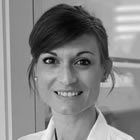 |
| KEYNOTE |
|
 |
| . |
|
|
Pilar Domingo-Calap
Universitat de València - CSIC, Spain
Keynote – Plenary Session
Dr. Pilar Domingo-Calap (UV, 2012, Excellence award) is a biologist interested in the biomedical implications of viruses. She leads the Environmental and Biomedical Viruses lab at the Instituto de Biología Integrativa de Sistemas (UV-CSIC) as a Ramón y Cajal researcher. Her main research lines are viral environmental epidemiology and biomedical application of phages, including diagnosis, prevention and therapy. Currently, she is the principal investigator in three ongoing projects, and has published 36 scientific articles and book chapters, being first or last author in 25 of them, and corresponding author in 13. In addition, she is interested in translational research, being the principal investigator in 10 transfer contracts with national companies with biomedical and biotech purposes. ORCID 0000-0003-2829-8809.
|
|
|
|
|
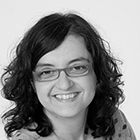 |
| INVITED |
|
 |
| . |
|
|
M.Carmen Estevez
ICN2 / CSIC, Spain
Invited – Plenary Session
M.-Carmen Estevez obtained her PhD in Chemistry by the University of Barcelona in 2005. She was a Postdoctoral Fellow in the Department of Chemistry at the University of Florida (2006-2008). She currently holds a Senior Researcher position at the Catalan Institute of Nanoscience and Nanotechnology (ICN2) at the Nanobiosensors and Bioanalytical Applications Group (since 2009) and is the main responsible of the Nanoplasmonics research line, focused on the design and implementation of novel biosensor devices and sensing biochips. Her research background is highly multidisciplinary, covering organic and analytical chemistry, immunochemistry and technological expertise related to biosensing like nanoparticle synthesis and applications, nanophotonic and nanoplasmonic chips design and fabrication, and device integration and miniaturization. Her interests include both the technological development of photonic and plasmonic biosensors and their transfer to real biosensing applications in clinical diagnostics and in the environmental field, aiming at transferring them to decentralized settings. She has co-authored over 45 publications (h-index of 23, with over 2500 cites) and serves as Associate Editor in the Photonics Section in Biosensors (MDPI).
|
|
|
|
|
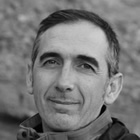 |
| KEYNOTE |
|
 |
| . |
|
|
César Fernández
IQAC / IMB-CNM-CSIC, Spain
Keynote – Plenary Session
César Fernández-Sánchez received a BSc in Analytical Chemistry and a PhD in Electrochemistry, both from the University of Oviedo (Spain). After doing a post-doctoral stay as a Marie-Curie fellow at Newcastle University (UK), he moved to the Barcelona Institute for Microelectronics (IMB-CNM (CSIC)), where he currently holds a permanent position as Scientific Researcher. He is the leader of the Chemical Transducers Group (gtq.imb-cnm.csic.es). His research interests are on the development of analytical microsystems including lab-on-chip devices, integrating electrochemical transducers and (bio)chemical receptors for the measurement of (bio)chemical parameters in liquids.
|
|
|
|
|
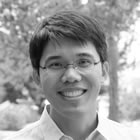 |
| KEYNOTE |
|
 |
| . |
|
|
Wei Gao
California Institute of Technology, USA
Keynote – Plenary Session
Wei Gao is an Assistant Professor of Medical Engineering in Division of Engineering and Applied Science at the California Institute of Technology. He received his Ph.D. in Chemical Engineering at University of California, San Diego and was a postdoctoral fellow in the Department of Electrical Engineering and Computer Sciences at the University of California, Berkeley. He is a recipient of IEEE EMBS Early Career Achievement Award, IEEE Sensor Council Technical Achievement Award, MIT Technology Review 35 Innovators Under 35, and ACS Young Investigator Award. He is a Highly Cited Researcher (Web of Science), a World Economic Forum Young Scientist, and a member of Global Young Academy. His research interests include wearable biosensors, digital medicine, micro/nanorobotics, bioelectronics, flexible electronics, and nanomedicine
|
|
|
|
|
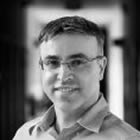 |
| KEYNOTE |
|
 |
| . |
|
|
Hossam Haick
Technion, Israel
Keynote – Plenary Session
Hossam Haick is a Full Professor in the Technion – Israel Institute of Technology and an expert in the field of nanotechnology and non-invasive disease diagnosis. He earned his doctorate from the Technion in 2002. After graduation, he did two, two-year postdoctoral fellowships – first at the Weizmann Institute of Science, then at California Institute of Technology (Caltech). He returned to the Technion at the end of 2006 as an assistant professor, becoming a full professor in 2011. Prof. Haick has published more than 220 publications in top-level journals in the field of nanotechnology, advanced/applied materials/chemistry, and medicine; more than ten five book chapters. Additionally, the technologies developed by Prof. Haick and his team have led to the production of more than 42 patents and patent applications – many of which have been licensed to six international companies. Prof. Haick is the cofounder of FeelIT Ltd. and NanoVation-S.G. Ltd. – startup companies aiming to commercialize innovative non-invasive technology for monitoring vital signs in health.
|
|
|
|
|
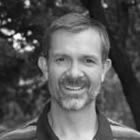 |
| KEYNOTE |
|
 |
| . |
|
|
Chuck Henry
Colorado State University, USA
Keynote – Plenary Session
Charles S. Henry is currently Professor of Chemistry, Chemical & Biological Engineering, and Biomedical Engineering at Colorado State University. His research interests lie broadly in the areas of microfluidics and electrochemistry with application to questions in bioanalytical and environmental chemistry. Specific areas of research include 1) the development of chemical sensors for viral and bacterial infections, 2) the development of paper-based microfluidic devices for environmental monitoring, 3) development of new electrode materials, and 4) tissue on a chip devices. Dr. Henry is also an Associate Editor for Analytica Chimica Acta.
|
|
|
|
|
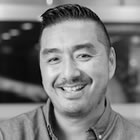 |
| KEYNOTE |
|
 |
| . |
|
|
Dean Ho
NUS, Singapore
Keynote – Plenary Session
Prof. Dean Ho is Provost’s Chair Professor, Director of The N.1 Institute for Health (N.1), Director of the Institute for Digital Medicine (WisDM), and Head of the Department of Biomedical Engineering at the National University of Singapore.
Using his CURATE.AI platform, Prof. Ho has led multiple pioneering clinical studies that have validated the promise of N-of-1 medicine, where only a patient’s own data is used to personalise their treatment.
Prof. Ho is an elected member of the US National Academy of Inventors (NAI and Fellow of the American Institute of Medical and Biological Engineering (AIMBE) and Fulbright Scholar. Prof. Ho appeared on the National Geographic Channel and his discoveries were featured on CNN, The Economist, Forbes, NPR and other news outlets. He served as the President of the Board of Directors of the Society for Laboratory Automation and Screening (SLAS), a 26,000+ member global drug development organization.
|
|
|
|
|
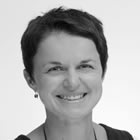 |
| KEYNOTE |
|
 |
| . |
|
|
Melanie Ott
University of California San Francisco, USA
Keynote – Plenary Session
Melanie Ott, M.D., Ph.D. is the director of the Gladstone Institute of Virology and a professor of medicine at the University of California San Francisco. She studied under Nobel laureate Harald zur Hausen in Heidelberg/Germany and has been recognized for her contributions to HIV Cure research and the pathogenesis of hepatitis C and Zika virus infections. Since January 2020, she has pivoted part of her efforts to SARS-CoV-2 research. This work is focused on infectious SARS-CoV-2 and harnessing the host response for new therapeutics. Her lab also develops new rapid diagnostics based on CRISPR and mobile phone technologies. Melanie is currently advising Gladstone and the University of California San Francisco on their COVID responses and was recently named one of the most influential women in the Bay Area by the SF Business Times. She is an elected member of the Association of American Physicians (AAP) and a fellow of the American Academy of Microbiology (AAM).
|
|
|
|
|
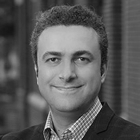 |
| PLENARY |
|
 |
| . |
|
|
Aydogan Ozcan
UCLA, USA
Plenary Talk
Dr. Aydogan Ozcan is the Chancellor’s Professor and the Volgenau Chair for Engineering Innovation at UCLA and an HHMI Professor with the Howard Hughes Medical Institute, leading the Bio- and Nano-Photonics Laboratory at UCLA School of Engineering and is also the Associate Director of the California NanoSystems Institute. Dr. Ozcan is elected Fellow of the National Academy of Inventors (NAI) and holds >45 issued/granted patents and >20 pending patent applications and is also the author of one book and the co-author of >700 peer-reviewed publications in major scientific journals and conferences. Dr. Ozcan is the founder and a member of the Board of Directors of Lucendi Inc., Hana Diagnostics, Pictor Labs, as well as Holomic/Cellmic LLC, which was named a Technology Pioneer by The World Economic Forum in 2015. Dr. Ozcan is also a Fellow of the American Association for the Advancement of Science (AAAS), the International Photonics Society (SPIE), the Optical Society of America (OSA), the American Institute for Medical and Biological Engineering (AIMBE), the Institute of Electrical and Electronics Engineers (IEEE), the Royal Society of Chemistry (RSC), the American Physical Society (APS) and the Guggenheim Foundation, and has received major awards including the Presidential Early Career Award for Scientists and Engineers, International Commission for Optics Prize, Biophotonics Technology Innovator Award, Rahmi M. Koc Science Medal, International Photonics Society Early Career Achievement Award, Army Young Investigator Award, NSF CAREER Award, NIH Director’s New Innovator Award, Navy Young Investigator Award, IEEE Photonics Society Young Investigator Award and Distinguished Lecturer Award, National Geographic Emerging Explorer Award, National Academy of Engineering The Grainger Foundation Frontiers of Engineering Award and MIT’s TR35 Award for his seminal contributions to computational imaging, sensing and diagnostics. Dr. Ozcan is also listed as a Highly Cited Researcher by Web of Science, Clarivate.
http://innovate.ee.ucla.edu/welcome.html
http://org.ee.ucla.edu/ |
|
|
|
|
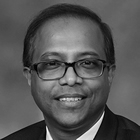 |
| KEYNOTE |
|
 |
| . |
|
|
Dipanjan Pan
University of Maryland, USA
Keynote – Plenary Session
Prof Dipanjan Pan is a tenured Full Professor at the University of Maryland with dual appointments in engineering and medicine. He is a renowned expert in nanomedicine and his research is focused on using nanomaterials for biosensing, molecular imaging and drug delivery application. He is the founder/co-founder and CTO of three early-stage startups. With support from National Institute of Health, his lab has been developing multiple approaches for point-of-care molecular detection of COVID-19. Some of these technologies were recently licensed for commercialization.
|
|
|
|
|
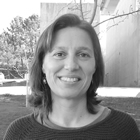 |
| KEYNOTE |
|
 |
| . |
|
|
Isabel Pastoriza-Santos
University of Vigo, Spain
Keynote – Plenary Session
Isabel Pastoriza-Santos obtained her PhD degree in Chemistry at the Universidade de Vigo (2001). She worked as a postdoctoral fellow at University of Melbourne (Australia) between 2002 and 2003. In 2004 she got a postdoctoral research position at University of Vigo. In 2009, she obtained a faculty position at the Department of Physical Chemistry of the University of Vigo. She is co-author of about 145 articles. Her current interests include the synthesis of plasmonic nanoparticles and nanocomposites, as well as their use in (bio)sensing and catalysis.
|
|
|
|
|
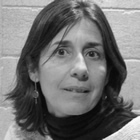 |
| KEYNOTE |
|
 |
| . |
|
|
Gloria Sanchez
IATA-CSIC, Spain
Keynote – Plenary Session
Dr. Gloria Sánchez is Tenured Scientist at IATA-CSIC since 2017. She obtained her Ph.D in Microbiology in 2003 (Excellence award) at the University of Barcelona. She moved to Nestlé Research Center in Switzerland, where she was the project leader of the enteric virus group (2004-2008). Head of the laboratory of food and waterborne viruses at the IATA-CSIC since 2008. Her research is focused on developing molecular methods for human enteric virus detection in food and water, and evaluating the effectiveness of food processing on human enteric viruses, mainly noroviruses and hepatitis A virus. In the last years, she has been actively involved in the development of real-time PCR methods combined with viability dyes for the selective detection of viable/infectious waterborne pathogens and the application of next-generation sequencing in the food and environmental virology field. Recently, her team (composed by 8 members including 2 postdocs, 2 PhD, 2 MsC, 1 research assistant and 1 technician) has developed a detection strategy of SARS-CoV-2 in sewage which is now used internationally. Co-author of 96 peer reviewed publications included in the SCI (h-index 32 and 2971 total citations), 17 book chapters, 1 book, 1 patent and 118 Communications to National and International Congresses. Editor or co-editor of 4 special issues
|
|
|
|
|
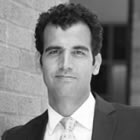 |
| KEYNOTE |
|
 |
| . |
|
|
Hadi Shafiee
Harvard Medical School, USA
Keynote – Plenary Session
Dr. Shafiee graduated from Isfahan University of Technology, Iran (BSc) in 2001 and University of Tehran, Iran (MSc) in 2003 with degrees in Mechanical Engineering. He received his Ph.D. in Biomedical Engineering and Mechanics from Virginia Polytechnique Institute and State University in 2010. After receiving trainings in the development of devices for cell sorting and pathogen detection at Virginia Tech and Harvard-MIT Division of Health Science and Technology, he started his own lab at BWH, HMS in 2014. Dr. Shafiee’s lab strives to develop innovative diagnostic tools to address unmet clinical challenges through integrating biology/medicine, micro- and nanotechnology, consumer electronics, and artificial intelligence. His work has been recognized by some of the major news outlets including CNN, theguardian, Boston Globe, CBS News, STAT, New York Times, etc. He has mentored more than 60 postdoctoral research fellows, and undergraduate and graduate students.
|
|
|
|
|
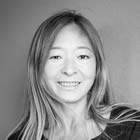 |
| KEYNOTE |
|
 |
| . |
|
|
Amy Shen
Okinawa Institute of Technology Graduate University, Japan
Keynote – Plenary Session
Amy Shen is a professor in Micro/Bio/Nanofluidics Unit at Okinawa Institute of Science and Technology Graduate University in Japan. Her research is focused on microfluidics with applications in biotechnology. She received the Ralph E. Powe Junior Faculty Enhancement Award in 2003 and the National Science Foundation?s CAREER Award in 2007. Amy was also a Fulbright Scholar in 2013. She is an associate editor for Soft Matter, Micromachines, and Biomedical Microdevices.
|
|
|
|
|
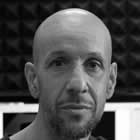 |
| KEYNOTE |
|
 |
| . |
|
|
Javier Tamayo
IMN-CSIC, Spain
Keynote – Plenary Session
Javier Tamayo received his PhD in Physics from the University Complutense of Madrid (1995-1998). He then moved to Bristol University to work on the mechanical properties of human chromosomes using atomic force microscopy to enlarge his vision about the link between mechanics and biology. He is now Professor in the Research Spanish Council and leads the Bionanomechanics Lab (http://www.imm-cnm.csic.es/bionano/en). The goal of the group is to provide answers and solutions to biological problems that are relevant for health by harnessing the intimate link between biological process and mechanical parameters. A central core in this research is the development of cutting-edge technologies and novel theoretical paradigms based on optomechanical devices and nanomechanical systems. His research has given rise to more than 100 highly cited publications.
|
|
|
|
|
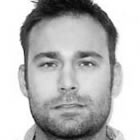 |
| KEYNOTE |
|
 |
| . |
|
|
Juan Ramón Tejedor
CINN-CSIC, Spain
Keynote – Plenary Session
Juan Ramon Tejedor is a Juan de la Cierva Postdoctoral fellow and Senior Researcher at the Cancer Epigenetics laboratory from the Nanomaterials and Nanotechnology Research Centre (CINN-CSIC) and the Institute of Oncology of Asturias (IUOPA / ISPA) led by Professor Mario F. Fraga. He studied biochemistry at the University of Oviedo (2007) and earned his Ph.D in Biomedicine from the University Pompeu Fabra (UPF, 2014) for work carried out at the Centre for Genomic Regulation (CRG, Juan Valcarcel’s lab), where he focused on the implications of alternative splicing networks in cell proliferation and apoptosis. In 2016 he joined the Spanish National Cancer Research Centre (CNIO, laboratories of Dr. Francisco X. Real and Dr. Nuria Malats), where he gained further experience in epidemiology and the molecular diagnosis of human cancer. During this period, he also received a Master degree in Bioinformatics and Computational Biology from the National Health School (ENS), the Institute of Health Carlos III (ISCIII) and CNIO.
|
|
|
|
|
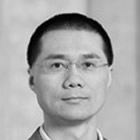 |
| KEYNOTE |
|
 |
| . |
|
|
Jing Wang
ETH Zürich, Switzerland
Keynote – Plenary Session
Jing Wang is an associate professor in the Institute of Environmental Engineering at ETH Zurich (Swiss Federal Institute of Technology Zurich), leading the group of Air Quality and Particle Technology. He is also a group leader at Empa (Swiss Federal Laboratories for Materials Science and Technology). Jing Wang obtained his PhD degree from the Department of Aerospace Engineering, University of Minnesota in 2005. He received the 'Best Dissertation' Award in Physical Sciences and Engineering, University of Minnesota in 2006 and the Smoluchowski award conferred by the Association for Aerosol Research (Gesellschaft für Aerosolforschung, GAeF) in recognition of his contribution to the field of “Environmental, Health and Safety Impact of Nanomaterials” in 2011. He was one of the keynote speakers in the International Aerosol Conference 2014 and AsianNANO2018. His main research interests are air quality, environmental and health impact of airborne pollutants, airborne nanoparticle measurement and emission control, air and water filtration. He is currently an editor for Aerosol Science and Technology.
|
|
|
|
|
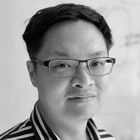 |
| INVITED |
|
 |
| . |
|
|
Andy Yeh
University of Washington, USA
Invited – Plenary Session
I received my B.S. degree in Pharmacy, and became a licensed pharmacist. I started my research career in Dr. Liang's lab for carbohydrate-based drug discovery where I received my M.S. degree in pharmaceutical sciences from National Taiwan University. To expand my broad scientific skills, I then joined Dr. Li's lab as a research assistant at Genomics Research Center, Academia Sinica. By then, I was working on exploring the crystal structure and biochemical mechanism of key enzymes among the biosynthesis pathway of aminoglycosides antibiotics.
|
|
|
|
|
| |
|
|
|
|
|
|
|
© Phantoms Foundation 2020 |
|
|
|